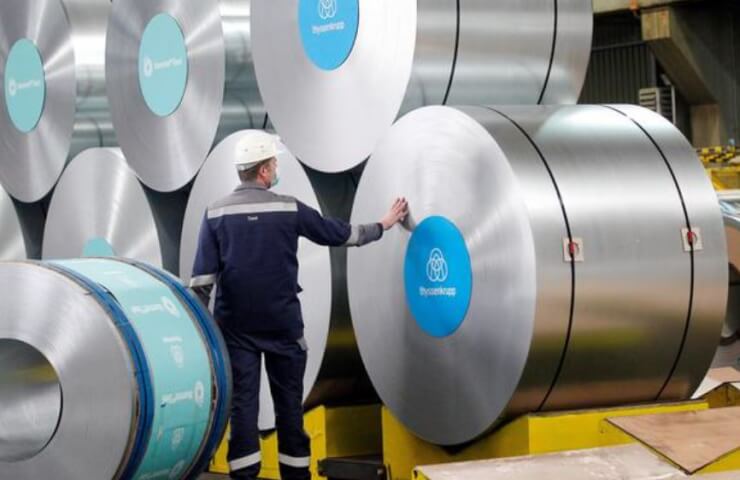The amendments to the EU's protective steel import quotas, introduced after an investigation by the European Commission initiated in December, are much less stringent than the requirements of the European Steel Producers Association Eurofer.
The proposed changes will result in a reduction in the total duty-free supply of hot rolled coils (HRC) from April 1 to 1.9 million tons per quarter, representing a decrease of 12.1% compared to the previous quarter. The reduction is the result of the decision to withdraw up to 65% of the redistributed Russian volumes due to sanctions following the conflict in Ukraine. These tonnages will also be removed from the quotas for sheet, wire rod and hollow profiles. The largest volume reduction on HRC is in India, where duty-free volume has dropped by about 23%.
In addition, the quota for access to HRCs from "other countries" is reduced from 15% to 13% every quarter. A limit of 13% has now been introduced for cold-rolled coils (CRC) quotas, 20% for hot-dip galvanized 4B and 25% for HDG 4A distributions, as well as 20% for rebar. The limits for other products are in the range of 15-30%.
The Commission cancels access to the remaining quota volumes in the last quarter of the year of measures, from April to June, for HRC, CRC and 4A HDG. Importers will receive up to 30% access in the remaining 4B volumes. There will no longer be a transfer of unused quota volumes from quarter to quarter for several products, including HRC, CRC, 4A HDG, plates and wire rod, but the mechanism will remain in effect for 4B HDG and rebar. The Commission will also reduce the annual quota liberalization rate from 1% to 0.1%. The last two changes will apply from July 1. All other changes will take effect on April 1.
A new quota of 1B for hot-rolled coils will also be introduced for imports under HS code 7212 60 00 with insignificant volumes due to the displacement of a very specific product identified by one interested party.
It is noteworthy that very few changes have been made to the list of developing countries that are not covered by these measures: Indonesia, Malaysia, Saudi Arabia, China and Thailand are still exempt from HRC quotas.
Eurofer sought a 50% reduction in quotas for flat rolled products, as well as a 32-41% increase in the protective duty applied to materials not included in the distribution. She also proposed a melting and pouring clause for Chinese steel and a reduction in the limit on HRC for other countries to 7.5%, rather than 13%, as proposed by the commission.
However, the changes are significantly less drastic than those requested by Eurofer.
The review was perceived as something insignificant by sellers and even buyers, who hoped that strict import restrictions would help raise prices. A source close to Eurofer said he was "shocked" by the results and that the doors "remain wide open" for imports. Another source at the factory




